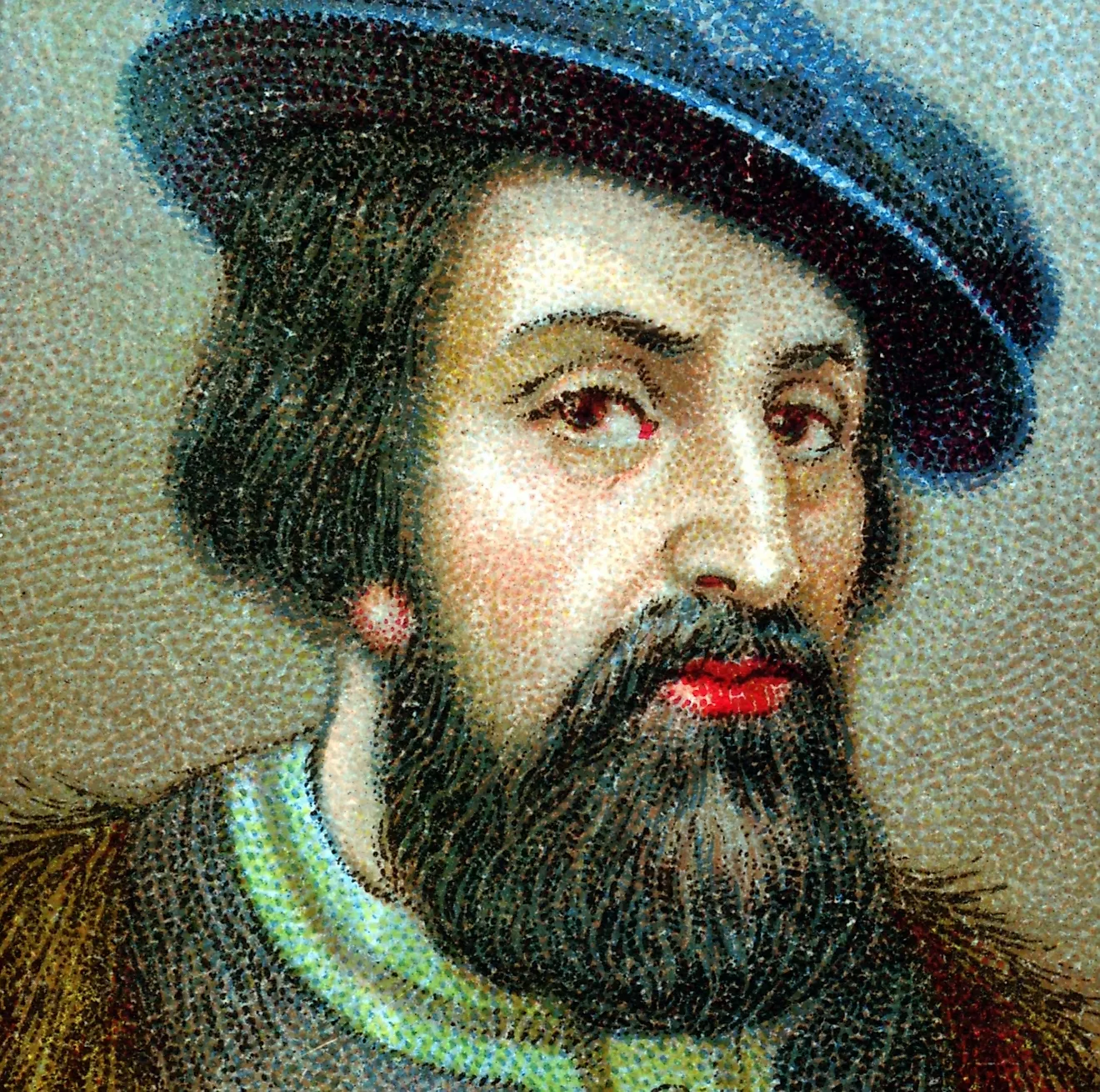Hernan Cortes: Famous Explorers of the World

5. Early Life
Hernan Cortes was a 16th Century Spanish explorer and conqueror (conquistador). Cortes was born in the town of Medellin in 1485 and, as a child, Cortes was considered pale and sickly. Although belonging to the lower nobility, his early years were spent learning Latin. Later, he studied under a notary scribe and learned the trade himself, and the experience would serve him well in years to come. He also studied for a short time at the University of Salamanca. He held many minor government positions for a time in several of Spain's colonies, using the skills learned in his youth.
4. Career
Utilizing his notary skills and moving up through the ranks fast, as a young man Cortes served Spain as the mayor of the capital city of the colony of Cuba. Cortes was at the right place at the right time when expeditions were at their height of popularity, as securing New World colonies was a top priority for the King of Spain. As such, Cortes confidently took the commission given to him by Velasquez, governor of Cuba, to conquer new lands himself. Sailing to Mexico with 600 soldiers and sailors, Velasquez began his career as a Spanish explorer and conqueror. Cortes executed his plans to conquer Mexico, after allying himself with some native city states who were against the ruling Aztecs of Mexico. Later, he had to remove himself from the commission of Velasquez to fully gain from this expedition. As a result, he had to contend with the forces sent by Velasquez to arrest him.
3. Discoveries
Cortes' defeat of Montezuma II and his Aztec forces in Mexico paved the way for the Spanish conquest of that country. At the same time, Cortes put himself in harm's way in his search for the fabled gold of the Aztecs all in the name of Spain. Cortes, through his prior experience gained in official positions in the existing colonies, was able to use his knowledge to govern and administer the new colonies in Mexico. Although Cortes was in Mexico mainly for his own benefits, it was Velasquez that pushed him to be the man that the world knows today. In his later years, he again went exploring further, and in so doing added the discovery of California to his laurels.
2. Challenges
Cortes was a man who saw Velasquez as his rival from the time he began his career as explorer. In his personal life and his career alike, Velasquez used every opportunity to potentially foil Cortes. Eventually, Cortes won over his rival, as he accomplished his goal of becoming Governor and Captain General of Mexico. In light of this, the King of Spain gave Cortes a coat of arms in 1525, placing his service into perpetual memory the world over. But due to other circumstances, he was later demoted to just singularly holding the position of Captain General. With his powers diminished, Cortes became restless, and went on another expedition to try and find a new sea route to the Pacific Ocean.
1. Death and Legacy
Cortes returned to Spain in 1540 and retired in Seville to an estate with all his accomplishments. On December 2nd, 1547, Cortes quietly passed away. Writers of his time celebrated Cortes as an instrument of God who delivered the new world from the cruelty of the Aztecs. But to some critics, he became an embittered old man who failed in his search to discover new sea routes. Cortes did, however, leave a legacy of writings that today make excellent reading for serious scholars in their studies. Scholars today debate heavily over the implications of his actions and whether to celebrate him as his contemporaries had done or whether to label him as a colonial conqueror who brought only destruction and massacre to the native peoples he encountered.











